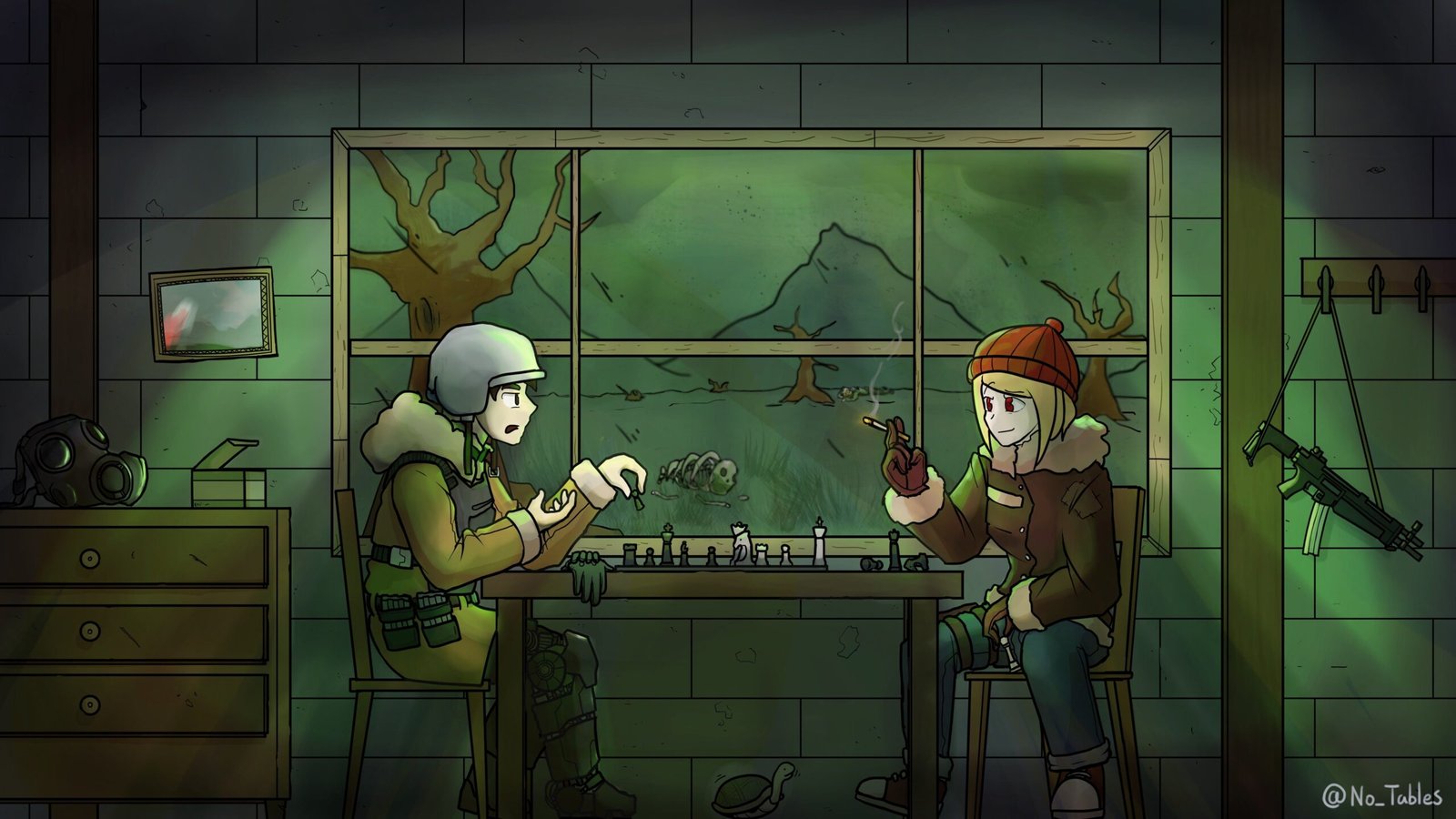Introduction to Custom Storytellers in RimWorld
In the world of RimWorld, the Storyteller plays a crucial role in shaping the narrative and challenges faced by players. These AI directors are responsible for orchestrating a series of events, incidents, and encounters that unfold throughout the game. Each Storyteller has its own unique personality, preferences, and approach to storytelling, resulting in vastly different experiences for players.
The default Storytellers provided by the game offer a range of playstyles, from the more forgiving and relaxed Phoebe Chillax to the unrelenting and merciless Randy Random. However, for players seeking even greater customization and unique narratives, creating custom Storytellers opens up a world of possibilities.
Custom Storytellers allow players to tailor the game’s events and challenges to their preferences, creating a truly personalized experience. Whether you desire a Storyteller that focuses on specific themes, such as survival, combat, or diplomacy, or one that introduces entirely new and unique incidents, the ability to craft your own Storyteller empowers you to shape the game’s narrative in unprecedented ways.
By creating custom Storytellers, you can fine-tune the frequency and intensity of events, adjust the difficulty curve, and even introduce entirely new mechanics or gameplay elements. This level of customization not only enhances replayability but also caters to the diverse playstyles and preferences of the RimWorld community.
Furthermore, custom Storytellers can be shared and distributed among players, fostering a vibrant modding community and enabling others to experience the unique narratives you’ve crafted. This collaborative aspect of RimWorld’s modding scene has given rise to countless creative and innovative Storytellers, each offering a fresh and engaging perspective on the game’s storytelling.
Prerequisites and Preparation
Before diving into creating custom storytellers in RimWorld, it’s essential to gather the necessary tools and resources. First and foremost, you’ll need a copy of the game itself. While custom storytellers can be created for any version of RimWorld, it’s recommended to use the latest stable release to ensure compatibility with existing mods and future updates.
In addition to the game, you’ll need a text editor capable of working with XML files. Popular choices include Notepad++ (for Windows), Sublime Text, or Visual Studio Code. These editors provide syntax highlighting and other features that make working with XML more convenient.
While not strictly required, having a basic understanding of XML coding will make the process smoother. XML (Extensible Markup Language) is a markup language used to structure and organize data in a human-readable and machine-readable format. Familiarity with XML tags, attributes, and hierarchies will help you navigate and modify the storyteller files more effectively.
Lastly, depending on your goals, you may want to consider installing any relevant mods or expansions that you wish to integrate with your custom storyteller. Compatibility with existing mods can be a crucial factor in ensuring a seamless gameplay experience.
With the game, a text editor, and a basic grasp of XML, you’ll be well-equipped to embark on the journey of creating custom storytellers tailored to your desired gameplay experience.
Understanding the Storyteller XML Structure
The core of creating a custom Storyteller in RimWorld revolves around understanding and modifying the XML structure that defines its behavior. The Storyteller XML file serves as a blueprint, outlining the various incidents, conditions, and difficulty settings that shape the game’s narrative and challenges.
At the root of the XML file is the StorytellerDef element, which encompasses the overall definition of the Storyteller. Within this element, you’ll find several key sub-elements that control different aspects of the Storyteller’s functionality.
Incident Definitions
One of the most critical components is the IncidentDef section, where you define the specific incidents that can occur during gameplay. Each IncidentDef represents a unique event, such as a raid, a natural disaster, or a special encounter. These incidents are assigned weights and frequencies, determining their likelihood of occurring at different points in the game.
Point Calculations
Another crucial aspect is the PointCalculationDef section, which dictates how the game calculates the difficulty points associated with each incident. These points influence the intensity and challenge level of the incidents, ensuring that the game remains balanced and engaging as the colony progresses.
Difficulty Settings
The DifficultyDef section allows you to define the overall difficulty curve for your custom Storyteller. This includes settings such as the baseline threat level, the rate at which the threat escalates over time, and the maximum threat cap. Adjusting these values can create a more relaxed or intense gameplay experience, catering to different player preferences.
Conditions and Triggers
Additionally, the XML structure supports the inclusion of ConditionDef and TriggerDef elements, which enable you to set specific conditions or triggers for incidents to occur. These can be based on factors like the colony’s wealth, population size, or even specific research milestones, allowing for greater control over the narrative flow.
By understanding and manipulating these key elements within the Storyteller XML structure, you can craft a truly unique and tailored gameplay experience for RimWorld players.
Creating a New Storyteller XML File
To begin creating your custom Storyteller, you’ll need to set up a new XML file within the appropriate mod folder. RimWorld follows a specific naming convention for Storyteller files: Storyteller_YourStorytellerName.xml. Replace “YourStorytellerName” with a descriptive and unique name for your Storyteller.
Within this XML file, you’ll define the core structure and elements that govern your Storyteller’s behavior. The basic structure should include the following elements:
<?xml version="1.0" encoding="utf-8" ?>
<StorytellerDef>
<defName>YourStorytellerName</defName>
<label>Your Storyteller Label</label>
<description>A brief description of your Storyteller's purpose or theme.</description>
<!-- Incident frequency and difficulty settings go here -->
<!-- Custom incident definitions go here -->
<!-- Other optional settings and configurations go here -->
</StorytellerDef>
The defName element should match the filename, while the label and description provide a user-friendly name and description for your Storyteller. These will be displayed in the game’s Storyteller selection menu.
Within this basic structure, you’ll populate the various sections with your desired settings, incident definitions, and other customizations. Be sure to follow the proper XML syntax and formatting to ensure compatibility with the game.
Defining Incident Weights and Frequencies
One of the core aspects of customizing a Storyteller in RimWorld is defining the weights and frequencies of various incidents that can occur during gameplay. These incidents range from friendly trader caravans and wanderer joins to hostile raids, natural disasters, and disease outbreaks. By adjusting the weights and frequencies, you can shape the overall gameplay experience, making it more challenging, relaxed, or focused on specific types of events.
The incident weights are specified within the <incidentData> section of the Storyteller XML file. Each incident type has a corresponding <incident> element with a def attribute that references the incident’s definition. Inside this element, you can set the <baseWeight> and <spawnOrNot> values to control the likelihood of the incident occurring.
The <baseWeight> value determines the relative probability of an incident happening compared to other incidents. Higher values increase the chances of the incident occurring, while lower values decrease the likelihood. It’s important to maintain a balanced distribution of weights to avoid overwhelming or underwhelming the player with certain types of events.
The <spawnOrNot> element is a nested set of conditions that further refine when the incident can occur. Here, you can specify factors such as the player’s wealth, colony population, game year, or any other criteria you deem relevant. This allows for more granular control over the incident’s frequency based on specific gameplay conditions.
In addition to incident weights, you can also adjust the overall frequency of incidents by modifying the <mtbDays> (mean time between days) and <allowedDuringPeacetime> values within the <incidentData> section. The <mtbDays> value determines the average number of days between incident occurrences, while <allowedDuringPeacetime> controls whether incidents can happen during peaceful periods or only during specific scenarios or quests.
By carefully balancing the incident weights
By carefully balancing the incident weights, frequencies, and conditions, you can create a custom Storyteller that delivers a unique gameplay experience tailored to your preferences. Whether you want a more intense and challenging environment with frequent raids and disasters or a more relaxed and exploratory experience with a focus on traders and friendly encounters, the ability to define incident weights and frequencies provides you with the flexibility to shape the game’s narrative to your liking.
Setting Difficulty Curves and Point Calculations
One of the key aspects of creating a custom Storyteller in RimWorld is defining the difficulty curves and point calculations that determine the intensity and timing of challenges faced by the player. These settings directly impact the overall gameplay experience, allowing you to create a Storyteller that aligns with your desired level of difficulty and pacing.
The difficulty curve is represented by a set of points that define the progression of the game’s challenge over time. Each point on the curve corresponds to a specific value of “points” that the Storyteller accumulates as the game progresses. These points are used to determine the frequency and severity of incidents that occur in the game.
To adjust the difficulty curve, you can modify the values of the pointsForAgeX elements in the Storyteller XML file. These elements define the number of points awarded for each in-game year or quadrum (depending on your settings). By increasing or decreasing these values, you can make the game more or less challenging over time.
In addition to the difficulty curve, you can also customize the point calculations that determine how points are awarded for specific events or conditions. For example, you can adjust the points awarded for wealth, population, or other factors that contribute to the overall difficulty of the game.
To modify the point calculations, you can edit the pointsScoreFactor and pointsScoreFactorFromIncidents elements in the Storyteller XML file. These elements define the weight or multiplier applied to various factors when calculating the total points for a given situation.
The impact of certain factors.
By carefully adjusting the difficulty curves and point calculations, you can create a Storyteller that provides the desired level of challenge and pacing for your RimWorld experience. You can make the game more intense and demanding by increasing the rate at which points accumulate or by giving more weight to factors that contribute to difficulty. Conversely, you can create a more relaxed or forgiving experience by slowing down the point accumulation or reducing the impact of certain factors.
It’s important to note that these settings can have a significant impact on the overall gameplay experience, so it’s recommended to thoroughly test and fine-tune your custom Storyteller to achieve the desired balance of challenge and enjoyment.
Adding Custom Incidents and Conditions
One of the most exciting aspects of creating a custom Storyteller is the ability to introduce entirely new gameplay elements and challenges through custom incidents and conditions. By defining your own incidents and conditions, you can craft unique narratives, scenarios, and obstacles that players must overcome.
Custom incidents allow you to script specific events that can occur on the colony, such as natural disasters, hostile raids, resource shortages, or even beneficial occurrences like resource drops or friendly visitors. To create a custom incident, you’ll need to define its properties, including the incident class, worker class, letter text, and associated quest nodes or game conditions.
Conditions, on the other hand, are used to determine when certain incidents or events should occur based on specific criteria. For example, you could create a condition that triggers a particular incident only when the colony’s wealth exceeds a certain threshold or when a specific research project has been completed.
To add custom incidents and conditions, you’ll need to create new XML files within the appropriate folders in your RimWorld mod directory. These XML files will define the properties, parameters, and behaviors of your custom incidents and conditions.
When defining a custom incident, you’ll specify details such as the incident class (which determines the type of event), the letter text that will be displayed to the player, and any associated quest nodes or game conditions. You can also define the incident’s target parameters, such as whether it affects the entire map, a specific faction, or a particular pawn.
For custom conditions
For custom conditions, you’ll need to define the condition class, which implements the logic for evaluating the condition, as well as any necessary parameters or thresholds. Conditions can be as simple or complex as you need, allowing you to create intricate and dynamic scenarios.
Once you’ve defined your custom incidents and conditions, you’ll need to reference them within your Storyteller’s XML file, assigning appropriate weights and frequencies for when they should occur. This process allows you to fine-tune the balance and pacing of your custom narrative, ensuring that players experience a carefully crafted and engaging storyline.
By leveraging custom incidents and conditions, you can truly push the boundaries of RimWorld’s gameplay, introducing unique challenges, events, and storylines that will captivate and surprise players. Whether you’re aiming to create a mod focused on survival, exploration, or storytelling, the ability to define custom incidents and conditions is a powerful tool in your modding arsenal.
Integrating with Existing Mods and Scenarios
One of the key considerations when creating custom storytellers is ensuring compatibility and seamless integration with existing mods and scenarios. RimWorld’s modding community is vast, and players often have a collection of mods installed, each adding unique gameplay elements and mechanics. Failing to account for these mods can lead to conflicts, unintended behaviors, or even game instability.
To ensure compatibility, it’s essential to thoroughly test your custom storyteller with the mods and scenarios you intend to use. Start by creating a clean testing environment with only the necessary mods and your custom storyteller enabled. Gradually introduce additional mods and scenarios, carefully monitoring for any conflicts or issues that may arise.
In some cases, you may need to adjust your storyteller’s settings or incident weights to accommodate specific mods or scenarios. For example, if a particular mod introduces new types of threats or events, you may need to adjust the incident weights or add custom conditions to ensure that your storyteller responds appropriately.
Additionally, consider providing configuration options within your custom storyteller that allow players to fine-tune settings or disable specific features if they conflict with other mods. This flexibility can greatly enhance compatibility and user experience.
It’s also important to communicate with the modding community and seek feedback from other players. Join relevant forums, discord servers, or modding communities to share your work, gather feedback, and collaborate with other modders. This can help identify potential conflicts or compatibility issues early on and foster a collaborative environment for improving your custom storyteller.
Testing and Debugging Custom Storytellers
Testing and debugging custom Storytellers is a crucial step to ensure they function as intended and provide an enjoyable gameplay experience. Here are some tips and best practices to follow:
-
Use Dev Tools: RimWorld includes powerful dev tools that can aid in testing and debugging. The
dev_modeallows you to spawn incidents, change game settings, and inspect game data. Use it to trigger your custom incidents and observe their behavior. -
Check Logs: RimWorld generates detailed logs that can provide valuable information about errors, warnings, and events occurring during gameplay. Regularly check the logs for any issues related to your custom Storyteller and use the information to identify and fix bugs.
-
Test in Different Scenarios: Your custom Storyteller should work consistently across various scenarios, biomes, and game stages. Test it in different situations to ensure it behaves as expected and doesn’t introduce any unintended consequences or conflicts.
-
Collaborate with the Community: The RimWorld modding community is active and supportive. Share your custom Storyteller on forums, Discord channels, or modding platforms, and seek feedback and assistance from experienced modders. They can provide valuable insights and help you troubleshoot issues.
-
Incremental Testing: When introducing new features or making significant changes to your custom Storyteller, follow an incremental testing approach. Test each change thoroughly before moving on to the next, making it easier to isolate and fix issues.
Version Control
-
Use a version control system like Git to track changes to your custom Storyteller’s code. This will allow you to easily revert to a previous working version if needed and collaborate with others more effectively.
-
Automated Testing: While not always feasible for complex mods, consider implementing automated tests for your custom Storyteller. This can help catch regressions and ensure consistent behavior across different versions of your mod.
-
Seek Community Resources: The RimWorld modding community has created various tools, tutorials, and resources to assist with testing and debugging. Explore these resources and leverage them to streamline your testing process.
By following these best practices, you can effectively test and debug your custom Storytellers, ensuring a polished and enjoyable experience for players.
Sharing and Distributing Custom Storytellers
Once you’ve created and thoroughly tested your custom Storyteller, it’s time to share your creation with the RimWorld community. Sharing your custom Storyteller not only allows others to experience the unique gameplay you’ve crafted but also contributes to the vibrant modding ecosystem that keeps RimWorld fresh and engaging.
To distribute your custom Storyteller, you’ll need to package it in a format that can be easily installed by other players. The recommended approach is to create a mod package, which is essentially a compressed folder containing your Storyteller XML file(s) and any other necessary assets or files.
Here’s a step-by-step guide to packaging and distributing your custom Storyteller:
-
Create a Mod Folder: Start by creating a new folder for your mod. This folder will contain all the files and assets related to your custom Storyteller.
-
Add Necessary Files: Place your custom Storyteller XML file(s) and any other required files (e.g., textures, sounds, or additional XML files) into the mod folder.
-
Create a Mod Info File: Create a new text file named “About.xml” in the mod folder. This file will contain metadata about your mod, such as its name, author, description, and version information.
-
Package the Mod: Use a compression utility (e.g., WinRAR, 7-Zip) to compress the entire mod folder into a single archive file (e.g., .zip or .rar).
-
Upload to Mod Repositories: There are several popular mod repositories for RimWorld where you can share your custom Storyteller. Some popular options include:
- Steam Workshop: If you own RimWorld on Steam, you can upload your mod to the Steam Workshop, making it easily accessible to other Steam users.
- Ludeon Forums: The official Ludeon forums have a dedicated section for mods, where you can share your custom Storyteller with the community.
- Nexus Mods: Nexus Mods is a popular mod hosting platform for various games, including RimWorld.
When uploading your mod, be sure to provide detailed information about your custom Storyteller, including its features, compatibility, and any installation instructions or dependencies.
- Promote and Share: Once your custom Storyteller is available on a mod repository, promote it within the RimWorld community. Share links to your mod on forums, social media, or other platforms where RimWorld players gather. Encourage others to try out your creation and provide feedback or suggestions for further improvements.
By sharing your custom Storyteller
By sharing your custom Storyteller, you not only contribute to the RimWorld modding community but also open up new possibilities for others to experience the game in unique and exciting ways. Who knows, your custom Storyteller might just become the next popular addition to the game!
Advanced Techniques and Customization
While the basic structure of custom storytellers allows for a wide range of gameplay experiences, experienced modders and users can explore advanced techniques to further customize and enhance their RimWorld experience. One powerful approach is integrating custom storytellers with other mods, enabling unique interactions and scenarios that combine the strengths of multiple modifications.
For example, you could create a storyteller that specifically caters to a particular mod’s content, such as a “Cosmic Horror” storyteller that prioritizes incidents and conditions related to an eldritch horror mod. Alternatively, you could design a storyteller that seamlessly blends the content from multiple mods, creating a cohesive and immersive experience.
Another advanced technique is creating complex conditions for incidents and events. While the basic conditions allow for straightforward filtering based on factors like colony wealth or population, you can delve deeper into RimWorld’s code and data structures to create intricate, multi-faceted conditions. This could involve checking for specific colonist traits, building configurations, or even monitoring the presence of certain items or resources.
Tool in the modder’s arsenal
Randomization is another powerful tool in the modder’s arsenal. While the basic storyteller settings allow for randomized incident frequencies and difficulties, you can take this further by introducing random variations within individual incidents. For example, you could randomize the types of enemies that spawn during a raid, the specific resources rewarded in a trade caravan event, or even the environmental conditions accompanying a particular incident.
Additionally, experienced modders can explore advanced XML techniques, such as conditional branching, looping structures, and dynamic value calculations. These tools can enable complex storyteller logic, adaptable to the ever-changing state of the player’s colony and the challenges they face.
Ultimately, the advanced techniques and customization options for custom storytellers are limited only by your imagination and coding skills. With dedication and creativity, you can craft truly unique and unforgettable experiences that push the boundaries of what RimWorld has to offer.
Community Resources and Support
The RimWorld modding community is vibrant and supportive, offering a wealth of resources for those seeking additional help or inspiration for their custom Storytellers. Here are some valuable community resources:
Official RimWorld Forums: The official forums hosted by Ludeon Studios are a great place to ask questions, share your creations, and engage with other modders. The “Mods” section is particularly useful for Storyteller-related discussions.
Reddit’s r/RimWorld: The RimWorld subreddit is an active community where modders share their work, seek feedback, and discuss various modding topics, including custom Storytellers.
Discord Servers: Several Discord servers are dedicated to RimWorld modding, such as the official RimWorld Discord server and various community-run servers. These servers offer real-time support, collaboration opportunities, and a chance to connect with experienced modders.
Mod Repositories: Platforms like Steam Workshop, Ludeon Forums, and third-party mod repositories like RimWorld Mods can be excellent sources of inspiration. Exploring existing Storyteller mods can provide insights into their implementation and spark ideas for your own creations.
Tutorials and Guides: Many experienced modders have created comprehensive tutorials and guides on modding RimWorld, including sections on creating custom Storytellers. These resources can be invaluable for learning the intricacies of Storyteller development.
Modding Communities: Joining modding communities, such as those on Discord or Reddit, can connect you with like-minded individuals who share your passion for RimWorld modding. These communities often offer support, feedback, and collaborative opportunities.
Remember, the RimWorld modding community is generally welcoming and eager to assist newcomers. Don’t hesitate to reach out, ask questions, and seek guidance as you embark on creating your custom Storytellers.
Conclusion and Future Possibilities
Custom Storytellers in RimWorld offer a profound way to shape and personalize the gameplay experience. By tailoring incident frequencies, difficulty curves, and unique events, players can craft narratives that align with their desired playstyle, challenge level, or thematic preferences. Whether you seek a more relaxed colony-building experience or a relentless gauntlet of challenges, custom Storytellers empower you to mold the game’s storytelling to your liking.
Looking ahead, the potential for custom Storytellers is vast and exciting. As the modding community continues to grow and innovate, we can expect to see increasingly sophisticated and immersive Storyteller mods that push the boundaries of what’s possible in RimWorld. Imagine Storytellers that dynamically adapt to your playstyle, offering a tailored experience that evolves alongside your colony’s progress. Or perhaps Storytellers that integrate with other mods, creating intricate and cohesive narratives that span multiple gameplay elements.
Additionally, the continued development of RimWorld itself may open up new avenues for Storyteller customization. Future updates or expansions could introduce new mechanics, events, or systems that modders can leverage to create even more intricate and engaging Storytellers.
Ultimately, the future of custom Storytellers in RimWorld is limited only by the creativity and dedication of its passionate community. As players and modders continue to explore and push the boundaries of what’s possible, the narratives and experiences we can craft within this remarkable game will only become richer and more diverse.










